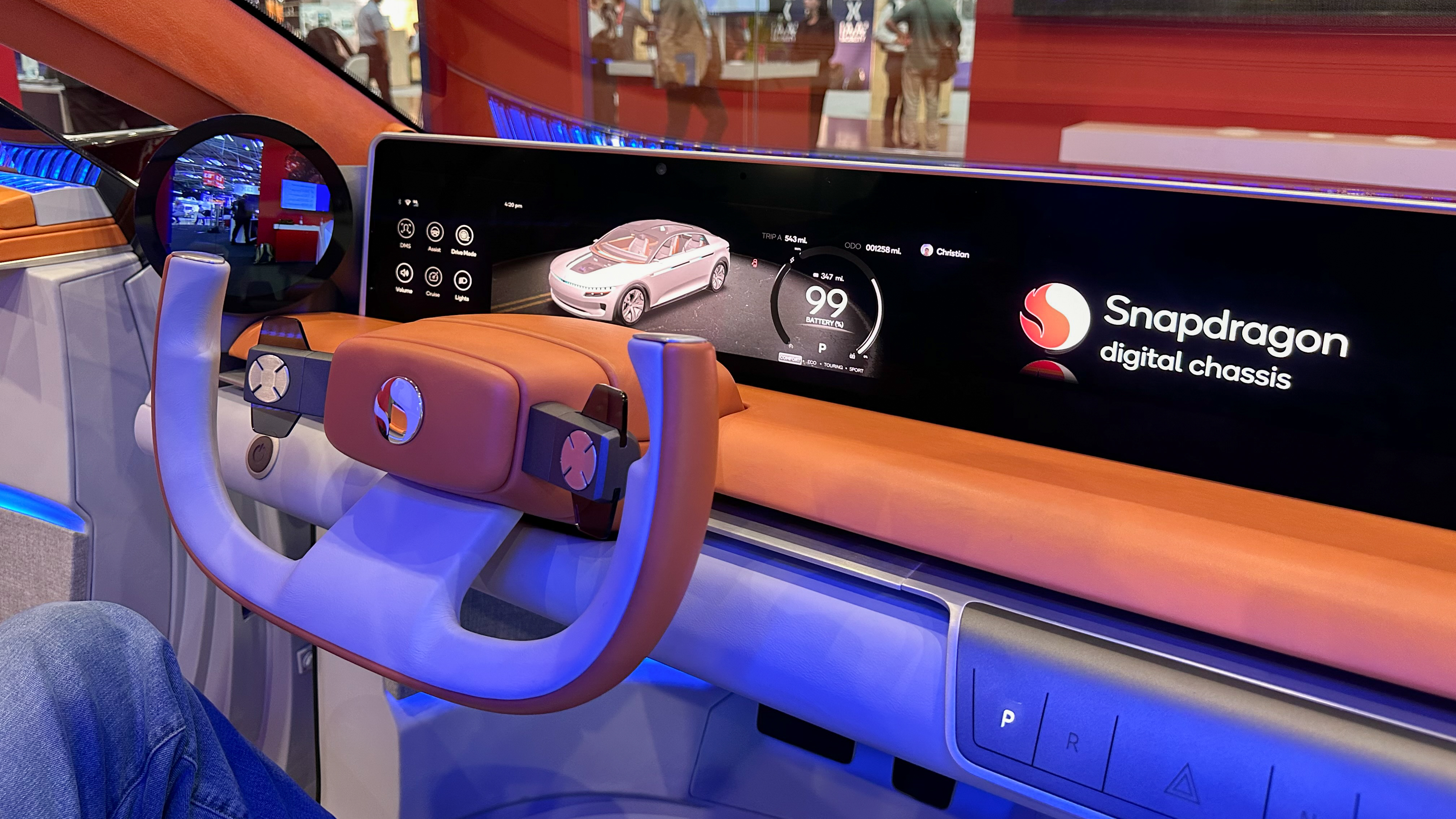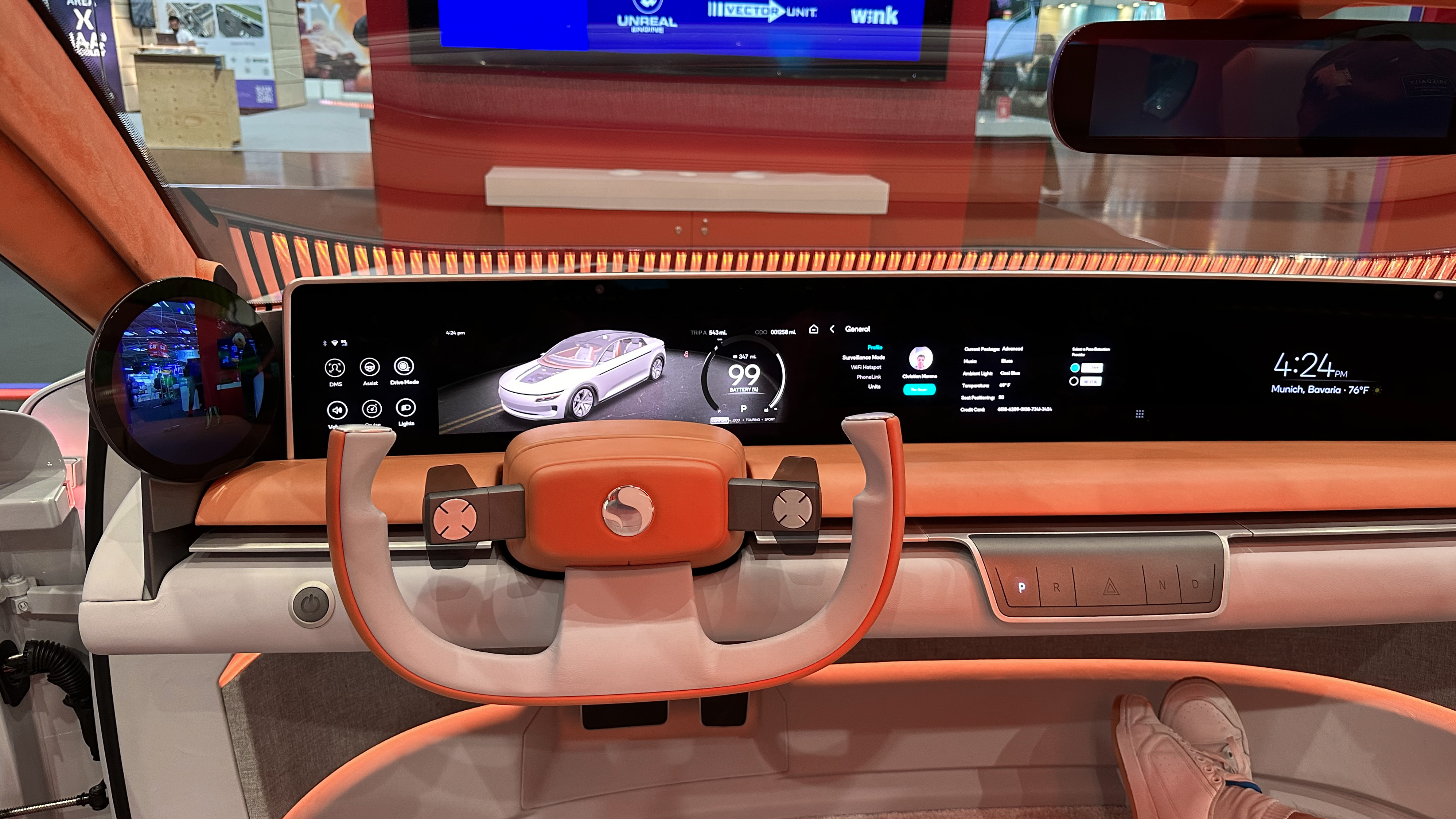

Cars of the near-future could offer a voice assistant as smart as ChatGPT, with the ability to have proper conversations with the driver and their passengers.
That’s according to Qualcomm, which recently announced an upgrade to its Digital Chassis, a connected technology platform for car makers to use in future vehicles.
Rather than ChatGPT itself, Qualcomm sees a future where similar generative AI platforms could appear in both ICE and electric vehicles, connected to the cloud and ready to have a natural conversation with the driver.
We’re already used to saying things like “navigate home” and “play the radio” – albeit with varying degrees of success, it must be said. But soon our cars will have AI systems capable of answering more complex requests.
Examples suggested by Qualcomm include drivers being able to say: “Take me on the most scenic route and point out some beautiful spots along the way,” or: “Place an order from my favourite Italian restaurant to arrive at my door just after I pull into the driveway from picking up the kids at soccer practice.”
It might be a while before we trust voice assistants to place the correct food order at the right restaurant for the time we want, but it’s an example of how tech companies think we’ll be interacting with AI in our cars in the near future.
Generative AI like ChatGPT has the potential to “improve the quality of really anything that you’re doing in the vehicle,” Nakul Duggal, Qualcomm’s general manager of automotive, told me during a visit to the IAA Munich motor show hosted by the tech company.
Sign up to the T3 newsletter for smarter living straight to your inbox
Get all the latest news, reviews, deals and buying guides on gorgeous tech, home and active products from the T3 experts

Duggal added: “I think there is a massive opportunity with hybrid AI, where you can run local capabilities in the vehicle, paired up with cloud capabilities that are continuously evolving.”
Speech recognition company SoundHound has partnered with Qualcomm to create SoundHound Chat AI for Automotive, which is a generative AI like ChatGPT, but designed specifically for use in a car. “Drivers and passengers can ask just about any question and receive a response from a system that can draw upon more than 100 information domains,” says Qualcomm. Those domains include third-party Large Language Models, like ChatGPT.
I was given a demonstration of the new in-car tech, and its ability to understand natural language is impressive – especially when a fellow journalist, unprompted, asked it to close a door, and the system knew which of the four seats they were sitting in.
Less impressive was how the AI is programmed to show images of navigation destinations, but instead of seeking them out online, the artificial intelligence had a crack at making the images itself. The results, in this case of notable German buildings, were somewhat unusual. I’ll put that down to image licensing issues, as the AI made the rest of the live demonstration look easy.
Qualcomm sees a future where some voice assistant tasks are handled by the car itself, while others are processed in the cloud and delivered via a data connection. This approach is just starting to appear among smartphone voice assistants too, where the simple stuff is processed locally (and quickly).
Asking our cars to order a takeaway or find a picturesque driving route might still be a while off, but real, tangible upgrades to today’s often-frustrating in-car voice tech are also on the horizon. Enrico Salvatori, president of Qualcomm Europe, told me: “Whatever you’re already doing [with voice control in a car], that can be done in a better way, an easier way, reducing the level of miscommunication or misunderstanding because the data available to the AI engine is much more that what [today’s] personal assistants can do.”
As for when cars will have voice assistants with the conversational skills of ChatGPT, it’s worth remembering that tech demonstrations from suppliers like Qualcomm take time to appear in vehicles on dealership forecourts. Siri and Alexa won’t suddenly get smarter overnight, but it’s still exciting to see what’s just a few years down the road for in-car tech.
Alistair is a freelance automotive and technology journalist. He has bylines on esteemed sites such as the BBC, Forbes, TechRadar, and of best of all, T3, where he covers topics ranging from classic cars and men's lifestyle, to smart home technology, phones, electric cars, autonomy, Swiss watches, and much more besides. He is an experienced journalist, writing news, features, interviews and product reviews. If that didn't make him busy enough, he is also the co-host of the AutoChat podcast.
-
 Garmin’s on a mission to update your wrist into oblivion as 100+ tweaks land on Fenix and Enduro watches
Garmin’s on a mission to update your wrist into oblivion as 100+ tweaks land on Fenix and Enduro watchesThe latest beta update looks comprehensive
By Matt Kollat Published
-
 5 reasons you should be excited about the brand new Samsung Bespoke AI Jet Ultra
5 reasons you should be excited about the brand new Samsung Bespoke AI Jet UltraNot sure if it’s obvious... but I can't wait to try it
By Lizzie Wilmot Published